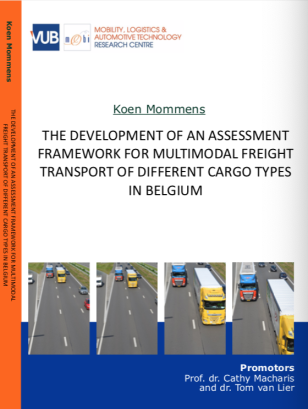
Multimodal transport is an important solution to tackle the sustainability concerns of the freight transport system. Nevertheless, the modal split is remaining constant throughout the last decades. Research and policy is focusing on containerized goods, while other cargo types are used in the supply chain as well. The incorporation of different cargo types in a framework that assesses the economic and sustainability potential of a modal shift represents the main contribution of this PhD. Two models were developed. The 'Location Analysis Model for Barge Transport of Pallets' identifies the optimal hub locations for palletized freight and calculates the potential modal shift and related sustainability gains. TRABAM is an agent-based freight transport model for Belgium, that incorporates different cargo types into the decision process of transport companies. The output are simulated movements of individual freight vehicles throughout time and space on an one-day basis. Containers, solid and liquis bulk are showing the highest shares for rail and inland waterway transport. Yet, the modal split for pallets, solid bulk and liquid bulk are more sensitive to an increase in road transport cost. The output of TRABAM enables in-depth external cost calculations.
